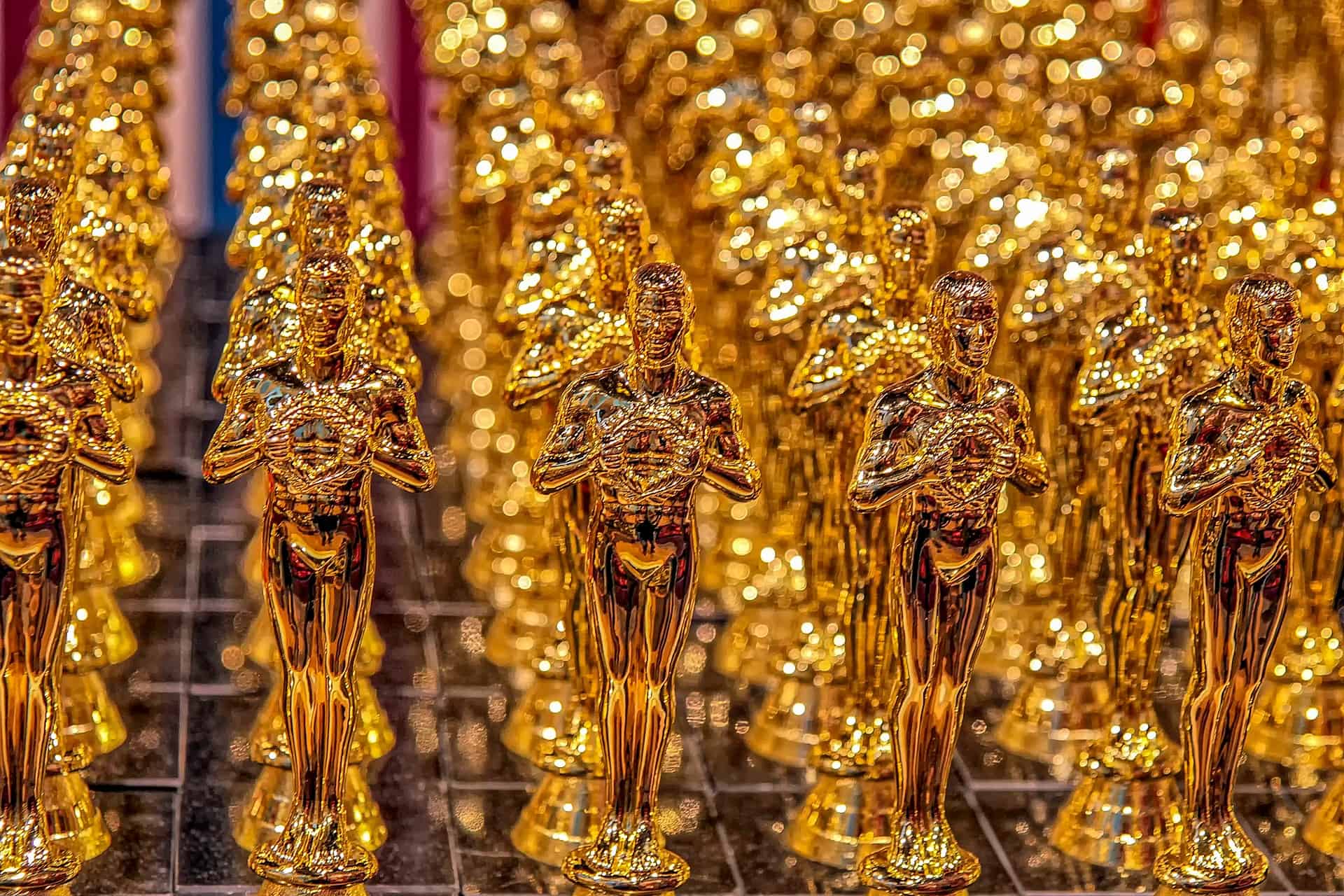These days, when opening the morning paper, it sometimes seems that movie news belongs in the Obituary section.
Like last week, when we learned the Arclight chain of theaters, including the Los Angeles location with its iconic Cinerama Dome, shuttered even as the city was reporting record low numbers from the pandemic. In the very first line of his article, Los Angeles Times staff writer Ryan Faughnder reporter decried that the closure “sent local moviegoers and filmmakers into mourning.”
If the Arclight’s closure feels like a certain kind of death for movie theaters, it’s certainly not unexpected. Movies have been sick for some time. And the pandemic is more late-stage symptom than root cause.
 Gross ticket sales have been falling for 17 years, and some are raising the question that when (if?) life gets back to normal, whether people will return to theaters at all.
Gross ticket sales have been falling for 17 years, and some are raising the question that when (if?) life gets back to normal, whether people will return to theaters at all.
And yet here we are, only two days from the Oscars. The prototype of all award shows, the Oscars has given us everything from joyful acceptances:
To overcoming the one-inch barrier of subtitles to make history:
‘Parasite’ is the first foreign-language film to win Best Picture at the #Oscars. See the complete list of winners here: https://t.co/73K5SP5IZ5 pic.twitter.com/H7i8gl7SsO
— Rolling Stone (@RollingStone) February 10, 2020
To what-the-heck-is-happening right now?!?!?
What actually happened backstage at the Oscars during the “La La Land”/”Moonlight” mixup https://t.co/N7SX3xE8uO pic.twitter.com/sHINFqUXEn
— Los Angeles Times (@latimes) February 27, 2017
Still, we may wonder: with moviegoing in rapid decline, do the Oscars even matter any more? In a nod to nominee Aaron’s Sorkin predilection for a good courtroom drama, let’s consider the evidence:
The Case for the Prosecution: Why the Oscars Don’t Matter
Movies are a thing of the past. Think back to the last time you were in a movie theater- if you can even remember back that far! And before you get too nostalgic about the smell of movie popcorn, think about how much more comfortable you would have been watching from your big screen at home. No sticky floors. No need for your knees to be jammed up against the chair in front of you. Need to take a bathroom break? Just hit pause. And for goodness sakes, take your time. You’re not going to miss anything.
If we’re going to have an award show, it should be relevant to our culture. According to Conviva’s 2020 State of Streaming report, worldwide streaming rose 44% in the last three months of 2020. The average consumer now pays for five streaming subscriptions. And 86% percent of us report we intend to maintain or increase our subscriptions into the new year.
And what is a movie anymore, anyway? Maybe we should ask Steve McQueen- the director, that is.
This one:
Happy Birthday to the BAFTA-winning director, Steve McQueen! pic.twitter.com/mPKICBOehB
— BAFTA (@BAFTA) October 9, 2014
Not this one

McQueen won the prize for Best Picture in 2014 for his film 12 Years a Slave. But that was back when movies still mattered. This year, he did something arguably more impressive with Small Axe (available to Amazon Prime members for free), a five-part anthology series telling the stories of West Indian immigrants in London from the 1960s to the 1980s.
The first installment, Mangrove, is an immersive experience into London’s Notting Hill neighborhood told through the eyes of a Jamaican restaurateur. It is basically a much better made, far fresher version of Trial of the Chicago Seven, one of this year’s Best Picture nominees. The second, Lovers Rock, is a thrilling fusion of music and dance and storytelling. The Rotten Tomatoes synopsis says it all: “A singular viewing experience that perfectly captures a moment in time, Lovers Rock is a lovingly-crafted ode to Black joy.”
Watch any of these five pieces and they may well be the best thing you see all year. And here’s the kicker: they’re considered to be TV, and therefore not even eligible for an Oscar!
Speaking of eligibility, Academy of Motion Pictures Arts and Sciences, who votes for the films, hardly represents filmgoers at large. For all the talk about diversity, equity, and inclusion in Hollywood, the Academy is 84% white. 68% male, and a majority of its members are over 50.

Small wonder that the Academy hasn’t rewarded the stuff most people actually are watching. With the exception of Black Panther, the Marvel universe hasn’t been recognized by the Academy, nor has Star Wars or Harry Potter or the Fast and the Furious.
You want us to tune in for 3+ hours on a Sunday night to watch people handing out awards for movies most of us haven’t even seen? By a voting body we don’t even know, and who doesn’t represent most of us? Hard pass.
The Case for the Defendant: Why the Oscars Do Matter
We get it- moviegoing isn’t as popular as it used to be. But that doesn’t mean that movies themselves are. 17% of Americans watched a movie every day in 2020 and another 29% watched several per week. What matters is the art form itself, not the manner it’s being delivered. Capturing an entire story in the span of 90-150 minutes takes precision, craftsmanship, and creativity.
The Oscars is all about recognizing excellence in the craft. Even earning an nomination can have huge implications for filmmakers and get people to experience art they would otherwise never watch. The “Oscars bump” is real: nominations for Netflix titles Crip Camp (466%), Mank (702%), and a Love Song for Latasha (1802%!!) increased traffic significantly.
Just think about how many more people will check out Best Picture favorite Nomadland if it takes home the big prize on Sunday. That many more people will have an opportunity to engage feelings of grief, loss, and hope at a time when those are so pervasive in our lives. If Chloe Zhao wins Best Director, maybe folks will learn about her usage of real people as actors, and be blown away by her film The Rider.
Relevance is not the same thing as value. Just because the days of the summer blockbuster are a thing of the past does not mean that movies themselves don’t matter. Streaming has allowed the opportunity for more diverse voices to be heard and their art to be seen by more people. That’s a good thing. And while it’s true that the Oscars have been painfully slow to celebrate the films of women and people of color, that is finally starting to change.
It’s almost a guarantee that this year’s Oscars are going to have the lowest ratings ever. Heck, they’ve been sliced in half over the last decade. But maybe that’s just what the Oscars needs to innovate and improve the production. They hired Steven Soderbergh (the guy who made Ocean’s 11!) as producer, and he’s promised to shake things up.
“The most exciting thing about this show is that it is going to feel like a film,” Soderbergh told Vanity Fair. “Every nominee, every person that gives an award, will feel like characters in a film. What we want to do is have this three-hour movie in which some awards are given out. And part of that, I think, is for all of us to remember how much we love movies.”
Sign me up.
The Verdict
There’s no question that the Oscars don’t capture the zeitgeist of our time the way they once did. Movies aren’t at the center of popular culture any more, and the trends clearly show that they don’t project to be. The Oscars, in particular, clearly do not grip our collective imaginations the way it used to. Prepare yourself for the Monday headline decrying the lowest television ratings in Oscars history.
But that doesn’t mean the Oscars don’t matter. Films will be recognized and elevated to prime positions on our favorite streaming services. We’ll have our attention drawn to some great pieces of art, and have the opportunity to watch from the comfort of our homes and share our experiences with friends and family.
And the television production itself promises to be the most interesting in recent memory. Soderbergh has promised there will be no Zoom involved, and nominees will gather safely in person in Los Angeles’ Union Station and in a couple international locations.
So if you’ve got some time Sunday evening, tune in, to see what these folks come up with. If nothing else, given how much stress we’ve all been under in the past year, it’s worth celebrating for a moment how much we love movies.


